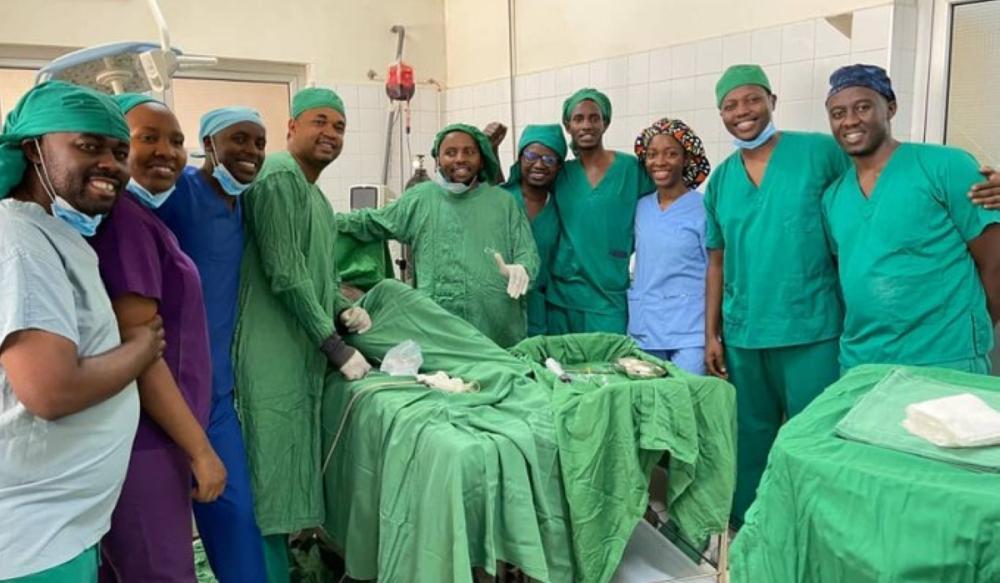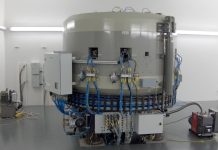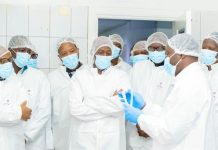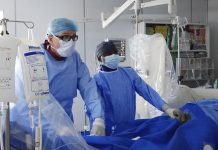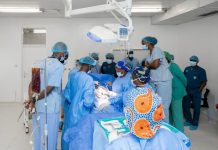Africa-Press – Rwanda. Rwanda’s health system is expanding its capacity to handle complex surgeries that were once only performed abroad. An example is an intrauterine transfusion at the University Teaching Hospital of Kigali (CHUK), where doctors successfully treated a severely anemic fetus that was later delivered healthy at 36 weeks.
The procedure, addressing Rhesus incompatibility, required highly specialised skills and coordination, including preparation of concentrated blood in collaboration with the National Center for Blood Transfusion.
Currently, the country has 162 surgeons for nearly 14 million people, far below the roughly 1,400 recommended by the World Health Organization for adequate population coverage.
Surgical procedures are increasing, with 1,788 operations per 100,000 people in 2022, more than double the rate in 2017, according to Rwanda’s National Surgical, Obstetric, and Anaesthesia Plan, in a four-year progress report published in April 2024.
Institutions like IRCAD Africa are equipping local surgical teams with advanced skills and strengthening surgical capacity.
Here are 10 main procedures accessible locally over the past two years:
Intrauterine fetal blood transfusion
In January, CHUK conducted the country’s first intrauterine blood transfusion on a fetus at 27 weeks gestation.
The unborn baby had severe anemia caused by Rhesus isoimmunization, a condition in which a mother’s antibodies attack the fetal red blood cells. The procedure involved injecting compatible red blood cells directly into the fetus and was repeated weekly until safe delivery. According to CHUK officials, this capacity provides an alternative to referrals for high-risk pregnancies.
Kidney transplants
Kidney transplantation, one of the most complex surgical procedures, is now performed at King Faisal Hospital (KFH) in Kigali.
The first three kidney transplants were carried out in May 2023 in partnership with visiting American specialists. Since then, 44 Rwandans have successfully received kidney transplants locally as of March. Previously, patients who needed kidney transplants were referred abroad, mostly to India, at an estimated cost of Rwf13 million per patient.
The transplant programme is conducted monthly, with visiting experts mentoring Rwandan surgeons during a two-year capacity-building phase.
Hepatoma-pancreatic-biliary surgery
Rwanda Military Referral and Teaching Hospital introduced hepatoma-pancreatic-biliary (HPB) surgeries for complicated liver, pancreas, and bile duct conditions in April 2023. Led by French surgeon Prof. Jean Marc Régimbeau alongside Rwandan specialists, these procedures previously required costly referrals abroad, sometimes up to Rwf100 million.
The programme focuses on hands-on training for local teams, ensuring sustainable advanced care and easing the financial burden on patients and the healthcare system.
Laparoscopic surgery
The opening of IRCAD Africa in Kigali in 2023 introduced minimally invasive surgery in the country. The Masaka-based center provides advanced laparoscopic training and performs procedures such as gallbladder removal, hernia repair, and gynecological surgeries.
IRCAD is part of an international network that specialises in surgical innovation. It aims to train over 1,000 African surgeons annually while increasing Rwanda’s domestic capacity to perform less invasive procedures, which reduce hospital stays and recovery time.
Percutaneous closure of patent foramen ovale (PFO)
Cardiologists, in May, performed Rwanda’s first catheter-based closure of a patent foramen ovale, a small heart opening that increases stroke risk.
Using a minimally invasive approach, a device was threaded through a vein to seal the hole. The procedure was conducted at King Faisal Hospital by Swiss cardiologist Dr. Hugues Lucron alongside Rwandan cardiologist Dr. Gérard Misago.
Interventional oncology through interventional radiology
Rwanda’s interventional oncology programme uses minimally invasive, image-guided procedures to treat tumours.
Techniques include transarterial chemoembolization (TACE) for liver cancers, radiofrequency ablation (RFA), and core-needle biopsies, providing targeted treatment with shorter recovery times compared to traditional surgery.
Spinal and central nervous system surgery
At the University Teaching Hospital of Butare (CHUB), neurosurgical services now include spinal operations and other central nervous system interventions.
CHUB’s department of surgery runs a neurosurgery unit that combines both open and minimally invasive techniques, with an aim to reduce risk and improve recovery for patients.
Neurosurgery
King Faisal Hospital’s Neurosurgery Unit offers complicated care for brain tumours, spine disorders, traumatic injuries, and conditions such as hydrocephalus and Chiari malformation.
In April 2024, the hospital inaugurated a Neurology Unit, in partnership with Ghent University Hospital (Belgium), equipped with advanced diagnostic tools like Electroencephalogram (EEG) and Electromyography (EMG).
Fertility treatment
Assisted reproductive technologies, including in vitro fertilization (IVF), are offered at several private clinics in Kigali. Legacy Clinics, among others, established laboratories and trained specialists to support couples facing infertility. Although IVF services began around 2018, access became more visible and more clinics started offering local treatment by 2023.
Advanced diagnostic imaging
Referral hospitals, including King Faisal, expanded access to advanced imaging technologies such as CT, MRI, and mammography.
While before these services were limited to some private clinics, they are now more extensively available. Recent tariff reforms have also made diagnostic imaging more affordable; for instance, under the revised 2025 health‐service rates, the cost of a CT brain scan for Community-Based Health Insurance (Mutuelle de santé) beneficiaries was reduced from Rwf45,000 to Rwf16,283.
For More News And Analysis About Rwanda Follow Africa-Press

